Find Help
More Items From Ergsy search
-
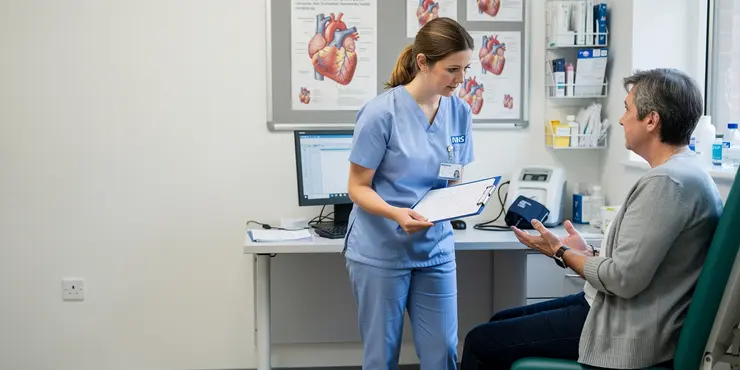
What exactly is an arrhythmia?
Relevance: 100%
-
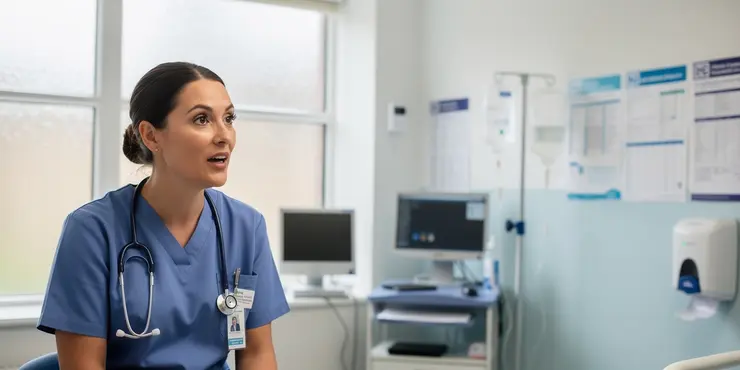
South London Arrhythmia Nurses Forum (16 June 2022)
Relevance: 84%
-
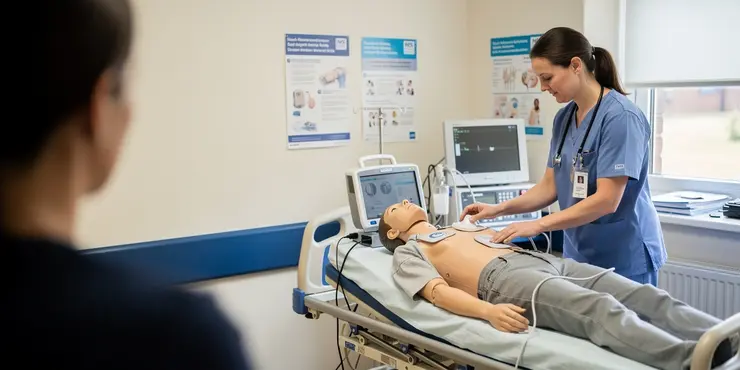
Can a defibrillator restart a stopped heart?
Relevance: 33%
-
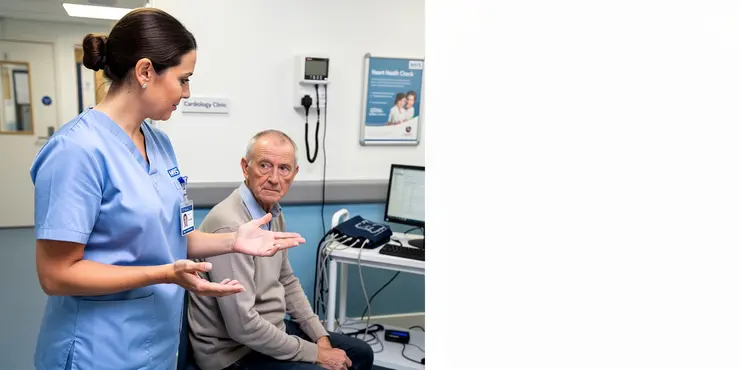
Is my abnormal heart rhythm dangerous?
Relevance: 31%
-
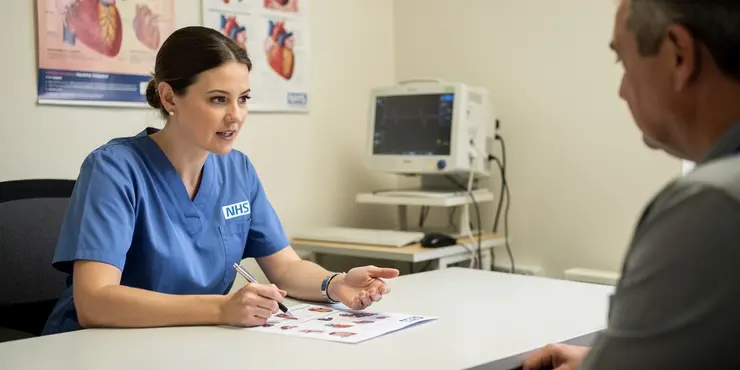
How do beta-blockers contribute to heart attack prevention?
Relevance: 30%
-
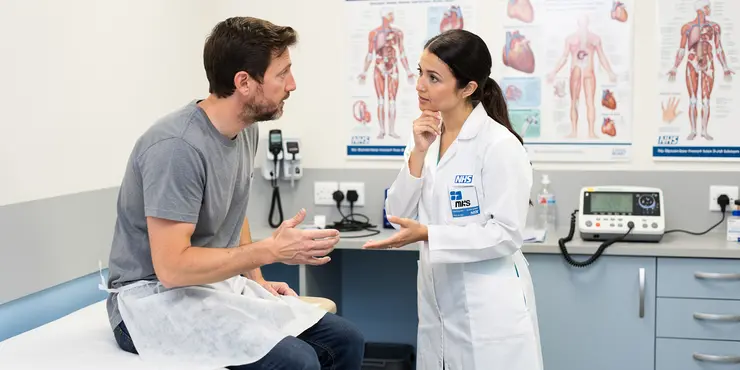
Is my abnormal heart rhythm dangerous?
Relevance: 26%
-
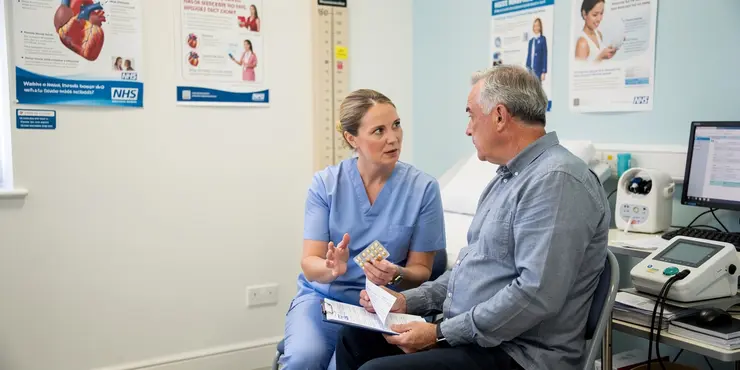
Do calcium channel blockers help in preventing heart attacks?
Relevance: 25%
-
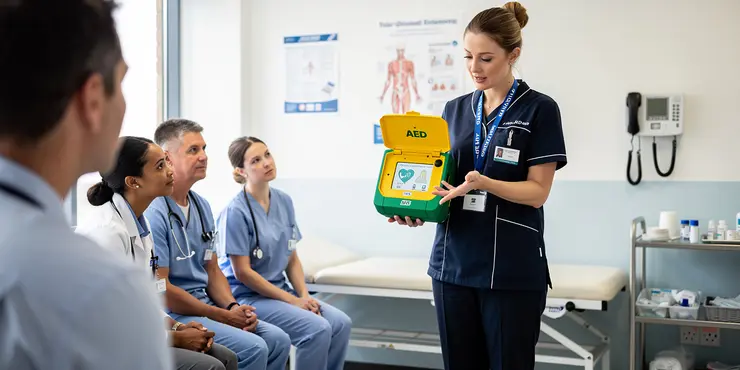
What are the different types of defibrillators?
Relevance: 24%
-
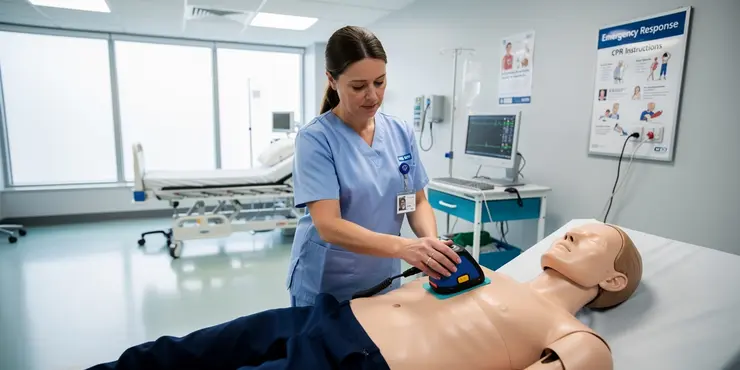
What is a defibrillator?
Relevance: 24%
-
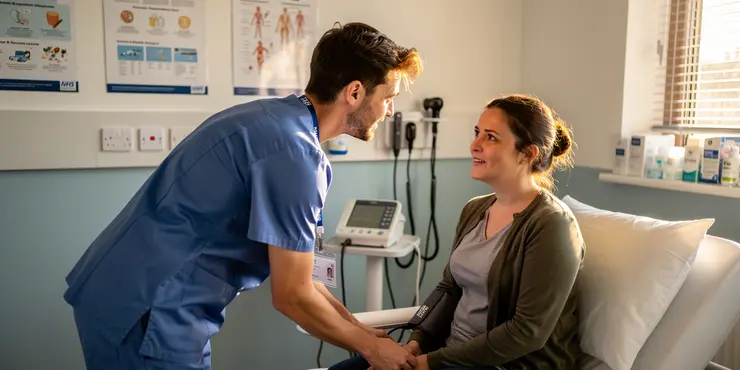
How effective are defibrillators?
Relevance: 18%
-
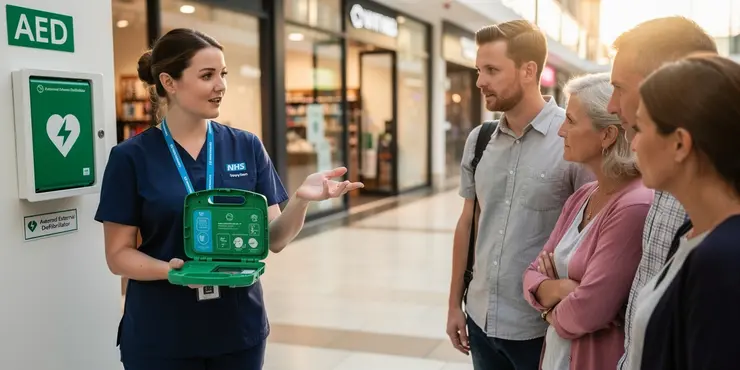
What is the difference between an AED and an ICD?
Relevance: 18%
-
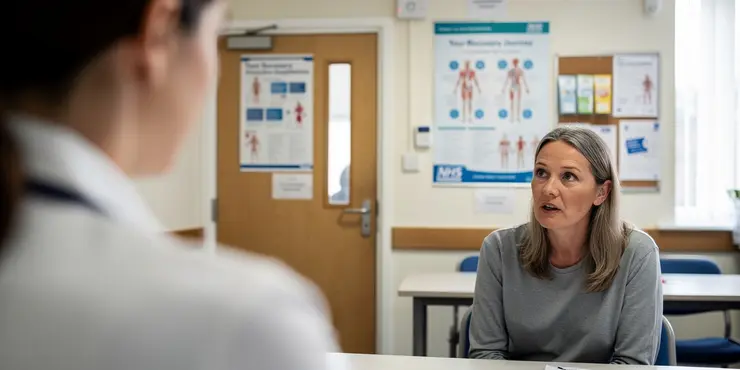
What are the long-term effects of a heart attack?
Relevance: 16%
-
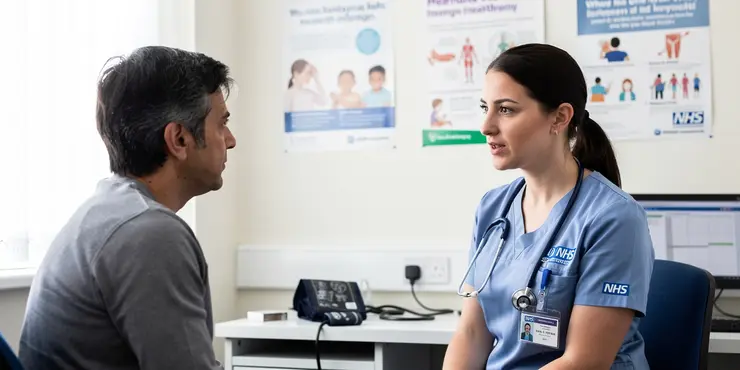
Who should avoid using caffeine pouches?
Relevance: 16%
-
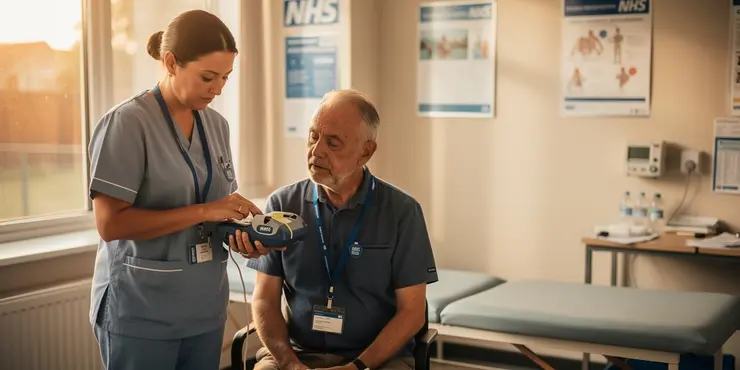
Is it safe to use a defibrillator on someone with a pacemaker?
Relevance: 16%
-
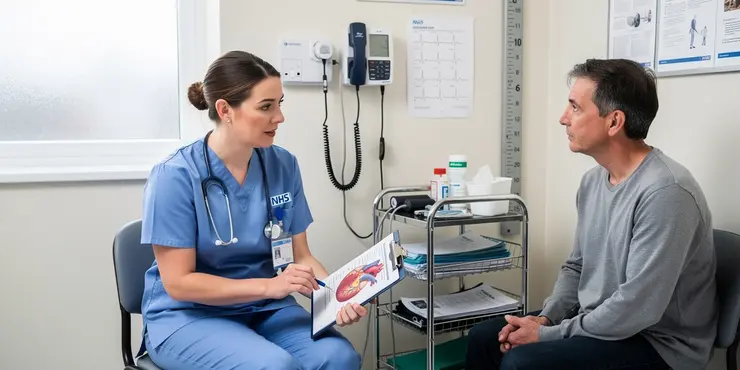
What causes heart failure?
Relevance: 12%
-
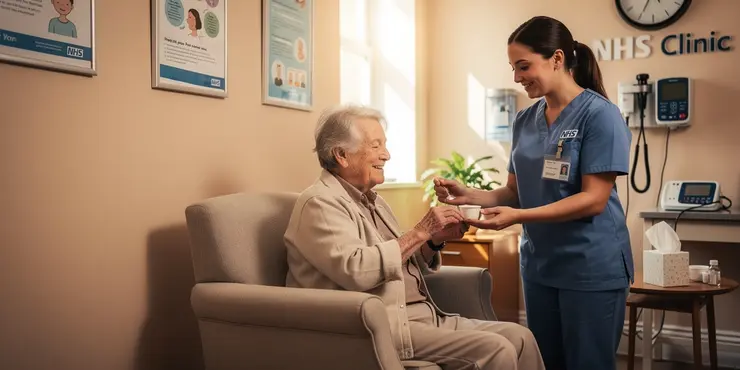
Medicines of the heart
Relevance: 12%
-
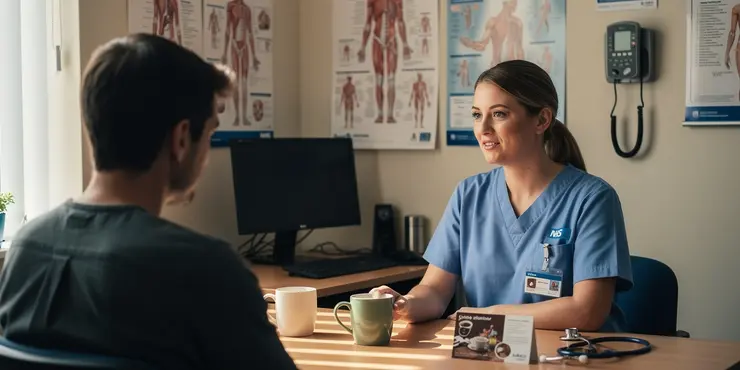
Does coffee consumption have any long-term heart health effects?
Relevance: 12%
-
What are the symptoms of methanol poisoning?
Relevance: 12%
-
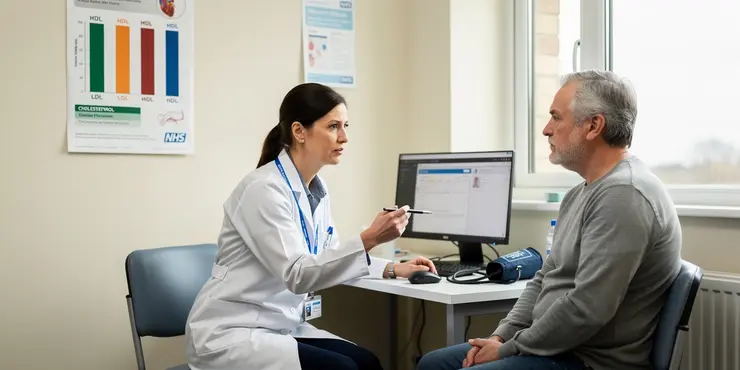
What drugs are commonly prescribed to reduce the risk of heart attacks?
Relevance: 12%
-
Are there specific fats that support heart health?
Relevance: 12%
-
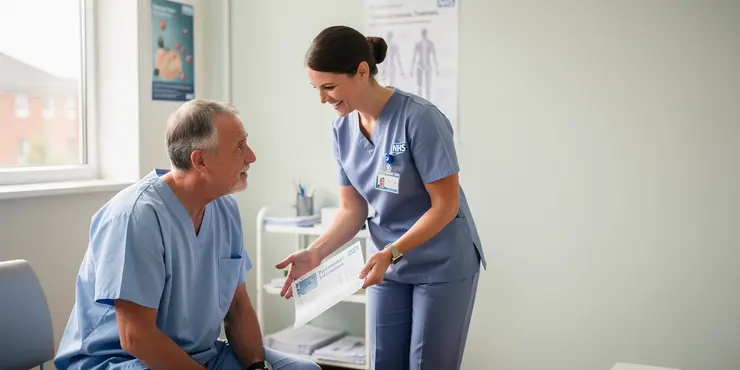
Having a pacemaker
Relevance: 11%
-
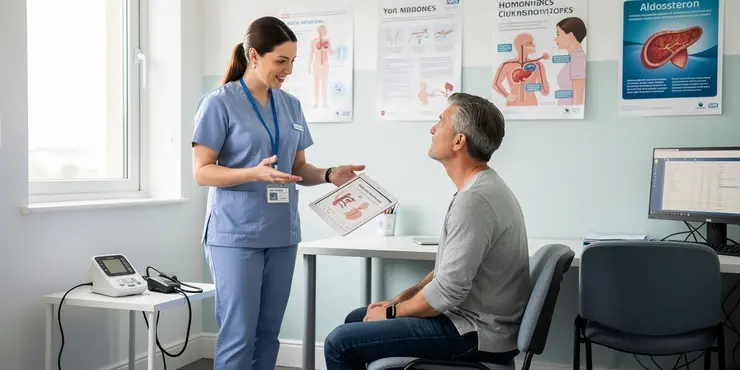
Why is reducing aldosterone levels important?
Relevance: 11%
-
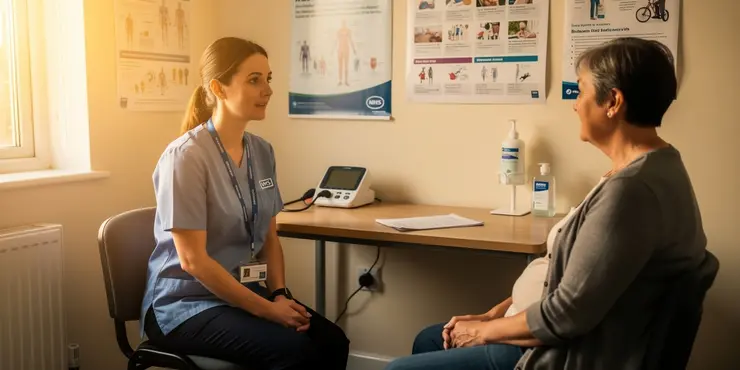
Is it possible for alcohol alone to cause similar symptoms?
Relevance: 11%
-
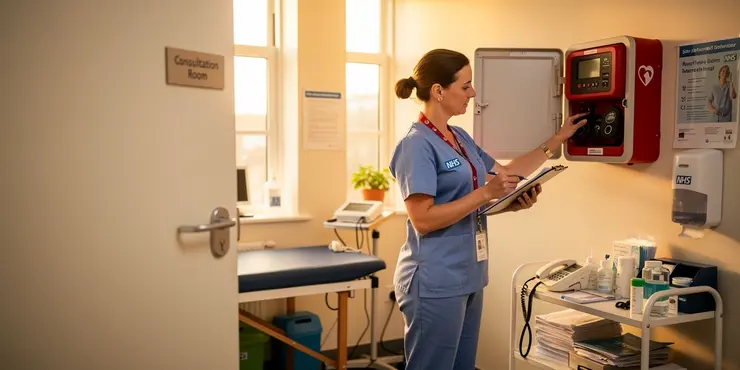
What maintenance do defibrillators require?
Relevance: 11%
-
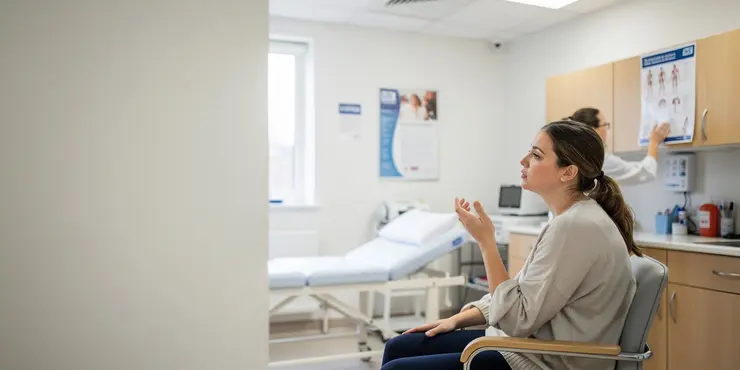
Can heart attack symptoms vary by age?
Relevance: 10%
-
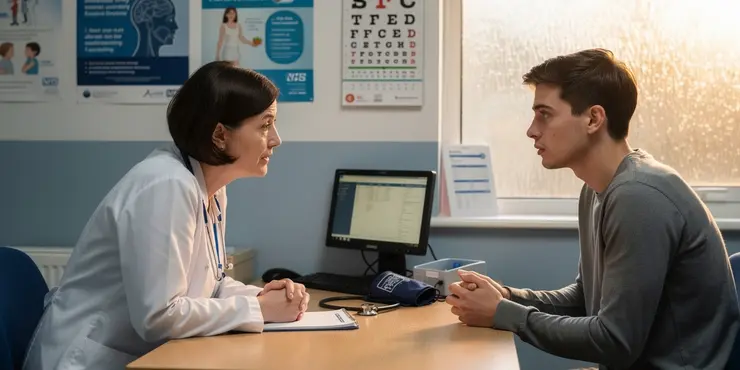
BSL - Diagnosis of panic disorder
Relevance: 9%
-
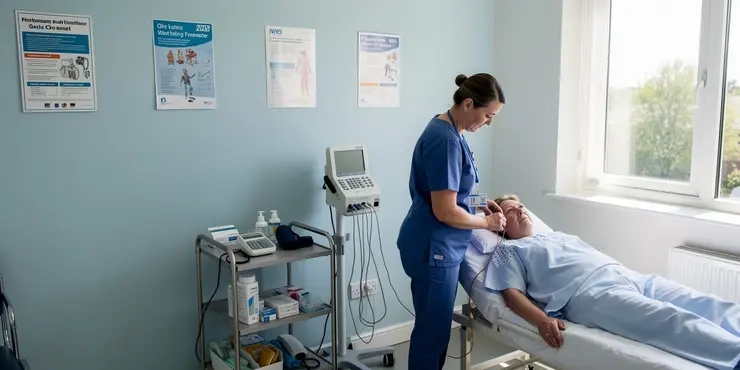
Electrocardiogram ECG
Relevance: 7%
-
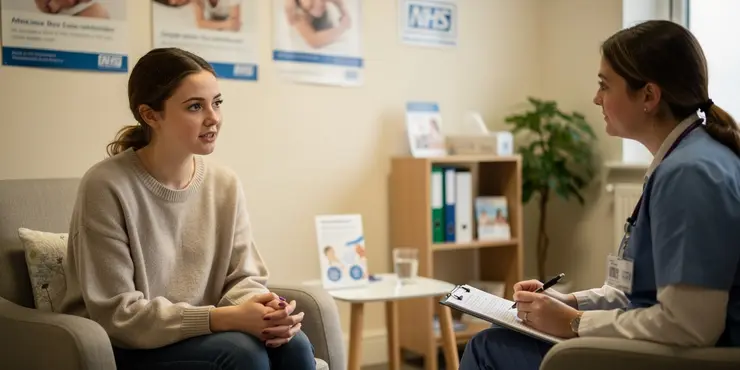
What is the impact of eating disorders on physical health?
Relevance: 7%
-
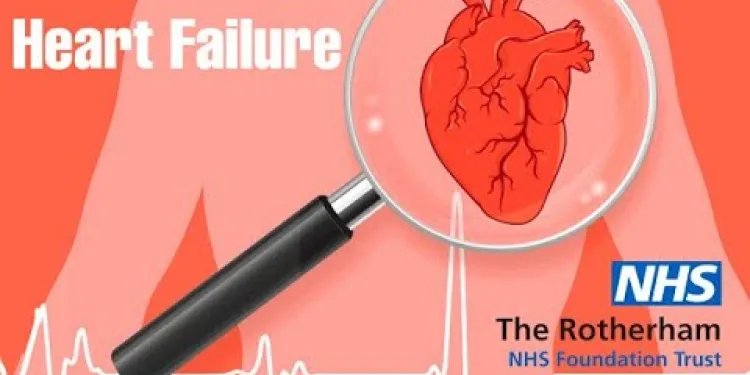
Heart Failure : What is heart failure?
Relevance: 6%
-
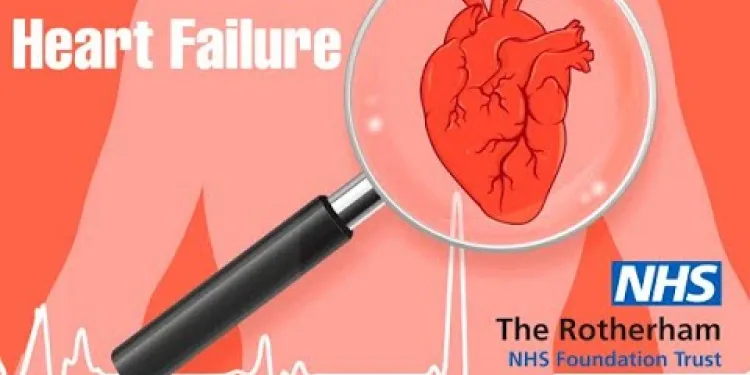
Heart Failure : Heart failure that cannot pump
Relevance: 6%
-
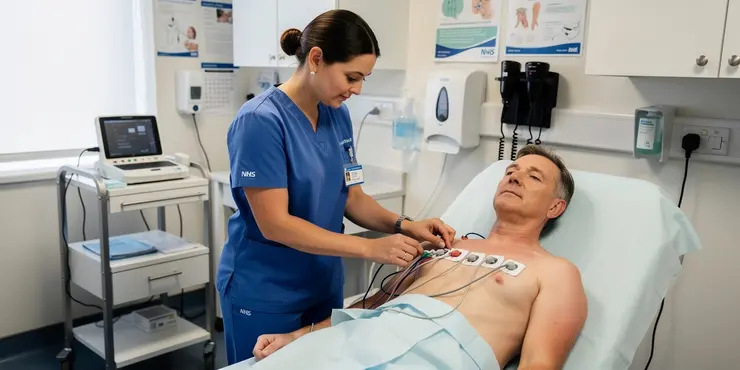
Performing a 12 lead ECG
Relevance: 6%
-

Heart Failure : When the heart becomes stiff?
Relevance: 5%
-
What are the long-term effects of untreated eating disorders?
Relevance: 5%
-
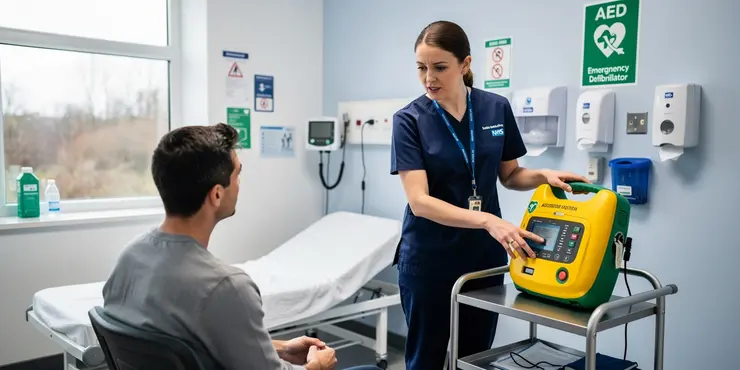
What is an AED?
Relevance: 5%
-
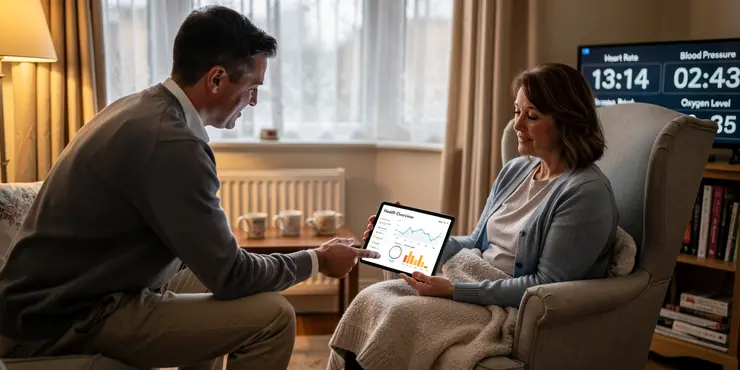
What types of conditions can be managed on a virtual ward?
Relevance: 5%
-
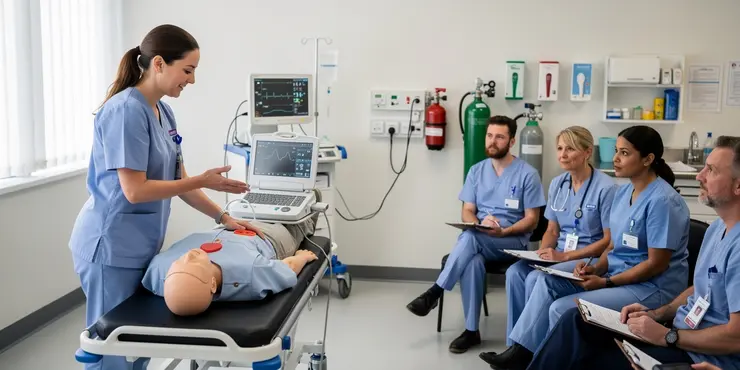
What is a Defibrallator?
Relevance: 5%
-
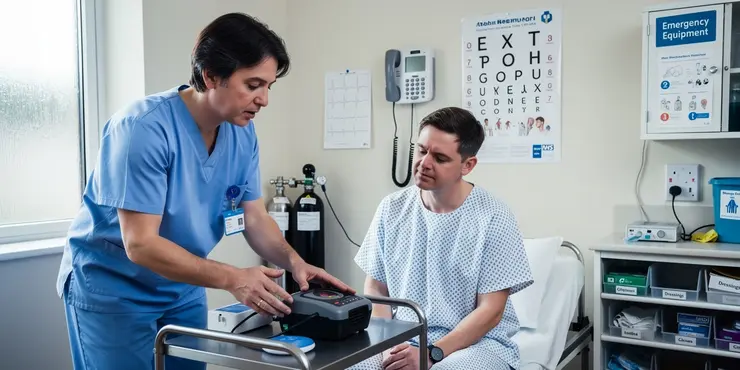
How do you know if a defibrillator is required?
Relevance: 5%
-
What are the risk factors for a heart attack?
Relevance: 5%
-
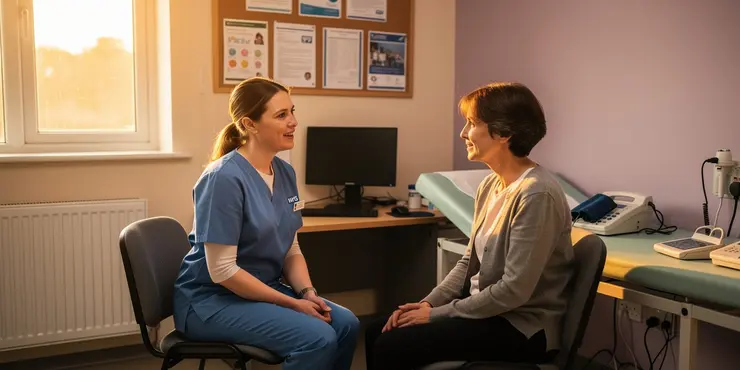
Why is sleep apnea dangerous?
Relevance: 5%
-
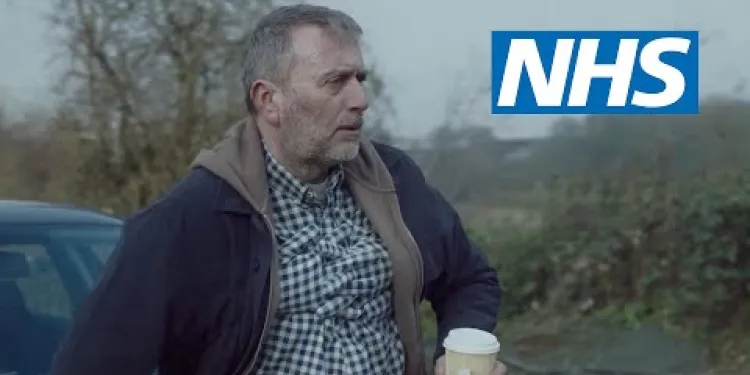
Heart Attack Symptoms - Help Us Help You | NHS
Relevance: 5%
What Exactly is an Arrhythmia?
Introduction to Arrhythmias
An arrhythmia is a medical condition characterised by an abnormal heartbeat, which can range from being too slow (bradycardia), too fast (tachycardia), or irregular. The heart relies on electrical signals to coordinate its pumping action. When these signals are irregular, it can lead to various types of arrhythmias, potentially impacting the heart's ability to efficiently pump blood.Types of Arrhythmias
There are several types of arrhythmias, each with unique characteristics:- Atrial Fibrillation (AFib): This is a common type of arrhythmia where the upper chambers of the heart (atria) beat irregularly and often rapidly.
- Ventricular Fibrillation (VFib): In this life-threatening condition, the heart's lower chambers (ventricles) quiver and can't pump blood effectively.
- Bradycardia: A slower than normal heart rate, which can lead to insufficient blood flow to the organs.
- Tachycardia: A faster than normal heart rate, which can interfere with the heart's function and increase the risk of stroke or heart failure.
Causes and Risk Factors
Various factors can lead to arrhythmias, including:- Heart Disease: Conditions such as coronary artery disease, high blood pressure, and heart failure.
- Electrolyte Imbalance: An imbalance in minerals like potassium, calcium, and magnesium.
- Substance Abuse: Excessive alcohol, caffeine, or drug use.
- Genetics: A family history of arrhythmias may increase the risk.
- Medications: Certain drugs can contribute to the development of arrhythmias.
Symptoms of Arrhythmias
Symptoms vary depending on the type of arrhythmia but common signs include:- Palpitations or noticeable heartbeats
- Dizziness or light-headedness
- Shortness of breath
- Chest pain or discomfort
- Fatigue
- In severe cases, fainting (syncope)
Treatment Options
Treatment for arrhythmias depends on the type and severity. Options may include:- Medications: Drugs to control heart rate and rhythm.
- Medical Procedures: Including catheter ablation, where abnormal heart tissue is destroyed.
- Devices: Such as pacemakers or implantable cardioverter-defibrillators (ICDs) to regulate heart function.
- Lifestyle Changes: Dietary modifications, stress management, and avoidance of triggering substances like caffeine or alcohol.
Conclusion
Understanding arrhythmias is crucial for early diagnosis and effective treatment. Patients in the UK experiencing symptoms should consult a healthcare professional for accurate diagnosis and management. Advances in medical technology and treatment options have significantly improved outcomes for those living with arrhythmias.What Exactly is an Arrhythmia?
Introduction to Arrhythmias
An arrhythmia is when your heart beats in a different way than normal. Sometimes it can beat too slow, too fast, or not in a steady pattern. The heart uses special signals to help it pump blood. If these signals are not right, it can affect how the heart works.Types of Arrhythmias
There are different kinds of arrhythmias:- Atrial Fibrillation (AFib): This is when the top parts of the heart beat quickly or not regularly.
- Ventricular Fibrillation (VFib): This is very serious. The bottom parts of the heart shake instead of pump well.
- Bradycardia: This means the heart beats too slowly and might not get enough blood to your body.
- Tachycardia: This means the heart beats too fast and might not work properly.
Causes and Risk Factors
Things that can cause arrhythmias:- Heart Disease: Problems like blocked arteries, high blood pressure, or heart failure.
- Electrolyte Imbalance: If important minerals in the body are not balanced, like potassium or calcium.
- Substance Abuse: Using too much alcohol, caffeine, or certain drugs.
- Genetics: It can run in families.
- Medications: Some medicines can cause arrhythmias.
Symptoms of Arrhythmias
Signs to look for if you have an arrhythmia:- Feeling your heart beat fast or unevenly
- Feeling dizzy or light-headed
- Having trouble breathing
- Chest pain or feeling uncomfortable in your chest
- Feeling very tired
- Passing out (fainting), in bad cases
Treatment Options
How arrhythmias can be treated:- Medications: Medicines to help the heart beat regularly.
- Medical Procedures: Like using special tools to fix the heart.
- Devices: Pacemakers or other devices to help the heart.
- Lifestyle Changes: Eating healthier, managing stress, and avoiding alcohol or caffeine.
Conclusion
Knowing about arrhythmias is important to get help early. If you have symptoms, talk to a doctor. In the UK, doctors can help with the right tests and treatments. New medical tools and treatments can help people with arrhythmias live better.Frequently Asked Questions
What is an arrhythmia?
An arrhythmia is an abnormality in the rhythm of the heartbeat, which can include irregular, too fast, or too slow heartbeats.
What causes arrhythmias?
Causes of arrhythmias can include coronary artery disease, high blood pressure, changes in the heart muscle, valve disorders, electrolyte imbalances, injury from a heart attack, and the healing process after heart surgery.
Are arrhythmias dangerous?
Some arrhythmias are harmless, but others can be serious or even life-threatening, increasing the risk of stroke, heart failure, or sudden cardiac arrest.
How is arrhythmia diagnosed?
Arrhythmias are diagnosed through various tests including electrocardiogram (ECG), Holter monitor, event recorder, echocardiogram, and electrophysiological study (EPS).
What symptoms might indicate an arrhythmia?
Symptoms can include palpitations, dizziness, fainting, shortness of breath, chest discomfort, and fatigue.
Can lifestyle changes help manage arrhythmias?
Yes, managing stress, avoiding caffeine and alcohol, quitting smoking, and maintaining a heart-healthy diet can help manage arrhythmias.
What are the treatment options for arrhythmia?
Treatment options include medications, lifestyle changes, catheter ablation, medical devices like pacemakers or defibrillators, and surgery.
Can arrhythmias go away on their own?
Some arrhythmias, particularly those caused by temporary conditions, can resolve on their own, while others may require treatment.
Is an irregular heartbeat always an arrhythmia?
Not all irregular heartbeats are arrhythmias, but many are. It's important to consult a healthcare provider if you notice irregularities in your heartbeat.
Can stress cause arrhythmias?
Yes, stress can trigger or exacerbate arrhythmias, particularly in individuals who may already have a predisposition.
How common are arrhythmias?
Arrhythmias are quite common, affecting millions of people in the UK and worldwide.
Can exercise trigger arrhythmias?
In some individuals, intense exercise can trigger arrhythmias. It is important to talk to your doctor about safe levels of physical activity.
What is atrial fibrillation?
Atrial fibrillation (AF or AFib) is a common type of arrhythmia where the heart's upper chambers beat irregularly, increasing the risk of stroke and other heart-related complications.
Can caffeine consumption affect arrhythmias?
For some people, excessive caffeine intake can trigger or worsen arrhythmias. Moderation or avoidance may be recommended.
What should I do if I experience symptoms of an arrhythmia?
If you experience symptoms of an arrhythmia, contact your healthcare provider promptly. In an emergency, seek immediate medical attention.
What is an arrhythmia?
An arrhythmia is when your heart doesn't beat normally. It can be too fast, too slow, or uneven.
Ask a doctor or a nurse if you want to know more or want help understanding arrhythmias.
You can use pictures or videos to help learn about this.
An arrhythmia is when the heart doesn't beat like it should. It can beat in a different way, too fast, or too slow.
What causes problems with the heart's beat?
What can make your heart beat funny?
Your heart can beat funny if:
- Your heart pipes are not working well (this is called coronary artery disease).
- Your blood pushes too hard in your pipes (this is high blood pressure).
- Your heart muscle changes shape.
- Your heart doors (valves) have problems.
- The salty chemicals in your body are not balanced.
- Your heart gets hurt from a heart attack.
- Your heart is getting better after an operation.
Try using pictures, simple words, or ask a helper if you feel confused.
Can heartbeats that are not regular be harmful?
Some heartbeats that are not normal are okay and won't hurt you. But some can be very bad. They can make you have a stroke or heart problems. Sometimes, they can make your heart stop suddenly.
How do doctors find out if you have arrhythmia?
Doctors check if your heart beats normally. They use special tools to listen and watch your heart.
Here are some ways doctors check your heart:
- Electrocardiogram (ECG or EKG): This tool shows how your heart is beating. It uses small stickers on your skin.
- Holter monitor: You wear this at home to record your heart for a day or two.
- Event monitor: You wear this for a few weeks. It helps when you have special heart events.
- Stress test: You walk on a treadmill. Doctors see how your heart works when you exercise.
- Echocardiogram: This test uses sound waves to look at your heart.
If you need help understanding, ask a friend or family member to explain. You can also ask your doctor to tell you more in a simple way.
Doctors use different tests to find out if someone has an uneven heartbeat, which they call an arrhythmia. Here are some of the tests they might use:
- An ECG: This is a test that checks how your heart is beating by looking at its electrical signals.
- A Holter monitor: This is a small device you wear that checks your heart all day.
- An event recorder: This is a device you can use at home to check your heart when you feel something might be wrong.
- An echocardiogram: This is an ultrasound that shows pictures of your heart.
- An EPS: This is a test doctors do to look closely at your heart's electrical system.
These tests help doctors understand if your heart is beating in the right way.
What signs show you might have an arrhythmia?
Arrhythmia means your heart is not beating normally.
Here are some signs to watch out for:
- Your heart feels like it's skipping beats or beating fast.
- You feel dizzy or light-headed.
- You find it hard to catch your breath.
- You feel very tired.
If you feel these signs, tell a grown-up or a doctor.
You can also use tools like picture cards or apps to help explain what you feel.
Signs you might feel are fast heartbeat, feeling dizzy, fainting, finding it hard to breathe, chest hurting, and feeling very tired.
Can changing how you live help with heart problems?
Some changes in your daily life might help with heart problems. Here are a few things you can try:
- Eat Healthy: Make sure to eat fruits, vegetables, and whole grains. Try to avoid junk food and too much sugar.
- Exercise Regularly: Doing activities like walking or playing sports can help your heart stay strong. Always talk to an adult before starting a new exercise.
- Avoid Smoking: Smoking is not good for your heart. If you smoke, talk to someone about how to stop.
- Limit Caffeine and Alcohol: It's a good idea to drink less coffee, tea, and alcohol. These can affect your heart.
- Get Enough Sleep: Make sure you rest well. Sleep helps your body feel better and your heart too.
- Relax and Reduce Stress: Try doing things that make you calm, like drawing or listening to music. This helps your heart relax.
Ask a grown-up or a doctor if you need help with these steps. They can give you more tips and support.
Yes, you can help your heart by doing these things:
- Keep calm and try to stress less.
- Stay away from coffee and alcohol.
- If you smoke, try to stop.
- Eat healthy food that is good for your heart.
What can help if your heart beats unevenly?
If your heart does not beat in a regular way, it is called arrhythmia. There are different ways to help:
- Medicines: Doctors can give you pills to help your heart beat normally.
- Pacemaker: A small device placed in your chest that helps control your heartbeat.
- Cardioversion: A doctor uses a machine to give your heart a small electric shock. This can help your heart beat like it should.
- Ablation: A doctor uses special tools to fix the parts of the heart causing the uneven beating.
It is important to talk to a doctor about what is best for you. A support worker or family member can help talk to the doctor and understand the information.
There are different ways to help you feel better. You can take medicine, change some habits, use special machines like pacemakers or defibrillators, or have surgery.
Can heartbeats become normal again by themselves?
Sometimes, heartbeats that are not normal can become normal on their own. This means they can go back to a regular beat without help.
If you feel your heart is not beating right, it is a good idea to tell a doctor. They can check and help you understand what is happening.
Using a heart monitor tool or app can help you keep track of your heartbeats. This is helpful so you can see if your heart is beating regularly.
Sometimes, the heart does not beat the right way. This is called an arrhythmia. Some arrhythmias get better by themselves, especially if they are caused by things that do not last long. But some arrhythmias need a doctor to help make them better.
If you find it hard to read, try using tools like text-to-speech apps to read out loud to you or colored overlays to make reading easier. You can also ask someone to help explain things you do not understand.
Does an irregular heartbeat mean you have arrhythmia?
The heart beats to pump blood. Sometimes it beats in a funny way. This is called an irregular heartbeat. But it does not always mean you have arrhythmia.
Arrhythmia is when the heart beats too fast, too slow, or in a strange way for a long time. Not all irregular heartbeats are arrhythmias.
If you feel your heart beating in a strange way, talk to a doctor. They can help you know what is happening.
Using a stethoscope or a heart monitor can help check your heartbeat.
Sometimes, your heart might not beat regularly. This is called an irregular heartbeat. Many irregular heartbeats are something called arrhythmias.
If you feel your heart isn't beating right, it's important to talk to a doctor.
Can stress make your heart beat funny?
Sometimes when you feel worried or scared, it can make your heart beat in a different way. This is called an "arrhythmia." Your heart might feel like it's going too fast or skipping beats.
If you're feeling this way, try these things:
- Take deep breaths to feel calm.
- Talk to someone you trust about how you feel.
- Make time to relax and do things you enjoy.
If your heart keeps beating funny, talk to a doctor. They can help you feel better.
Yes, feeling stressed can make heart problems worse. This can happen to people whose hearts are already weak.
How often do heart rhythm problems happen?
Heart rhythm problems, called arrhythmias, can happen to many people. They are not rare. Some people may have them without even knowing.
If you have questions or feel worried about heart rhythm problems, you can ask a doctor. There are also tools that can help, like:
- Watches that check your heart.
- Apps to keep track of your heart beats.
- Checking with a nurse or doctor.
Lots of people have a heart problem called an arrhythmia. This means their heart doesn't beat in the usual way. Many people in the UK and all over the world have this problem.
Here are some ways to make reading easier:
- Use a quiet place to read.
- Take your time and read slowly.
- Point your finger at the words as you read.
- Ask someone for help if a word is hard.
Can exercise cause heart problems?
When some people exercise a lot, it can make their heart beat in a funny way. This is called arrhythmias. It's a good idea to talk to your doctor about how much exercise is safe for you.
If you find reading hard, you can try using tools that read text out loud. You can also ask someone to read it with you.
What is atrial fibrillation?
Atrial fibrillation is when your heart does not beat in a regular way. Your heart might beat too fast or in a strange way.
This can make you feel tired or dizzy. It is a heart problem, and a doctor can help you with it.
You can use a heart rate app or a smartwatch to check your heart at home.
Atrial fibrillation, also called AF or AFib, is when the heart beats in a funny way. It happens in the top part of the heart. This can cause problems like a stroke or other heart issues.
Can drinking caffeine change your heartbeat?
For some people, drinking too much caffeine can cause or make heart problems worse. It might be good to drink less or not at all.
What should I do if I feel signs of a problem with my heart beating?
If you feel your heart beating funny, tell your doctor or nurse quickly. If it is really bad, go to the hospital right away.
Useful Links
This website offers general information and is not a substitute for professional advice.
Always seek guidance from qualified professionals.
If you have any medical concerns or need urgent help, contact a healthcare professional or emergency services immediately.
Some of this content was generated with AI assistance. We’ve done our best to keep it accurate, helpful, and human-friendly.
- Ergsy carfully checks the information in the videos we provide here.
- Videos shown by Youtube after a video has completed, have NOT been reviewed by ERGSY.
- To view, click the arrow in centre of video.
- Most of the videos you find here will have subtitles and/or closed captions available.
- You may need to turn these on, and choose your preferred language.
- Go to the video you'd like to watch.
- If closed captions (CC) are available, settings will be visible on the bottom right of the video player.
- To turn on Captions, click settings .
- To turn off Captions, click settings again.
More Items From Ergsy search
-

What exactly is an arrhythmia?
Relevance: 100%
-

South London Arrhythmia Nurses Forum (16 June 2022)
Relevance: 84%
-

Can a defibrillator restart a stopped heart?
Relevance: 33%
-

Is my abnormal heart rhythm dangerous?
Relevance: 31%
-

How do beta-blockers contribute to heart attack prevention?
Relevance: 30%
-

Is my abnormal heart rhythm dangerous?
Relevance: 26%
-

Do calcium channel blockers help in preventing heart attacks?
Relevance: 25%
-

What are the different types of defibrillators?
Relevance: 24%
-

What is a defibrillator?
Relevance: 24%
-

How effective are defibrillators?
Relevance: 18%
-

What is the difference between an AED and an ICD?
Relevance: 18%
-

What are the long-term effects of a heart attack?
Relevance: 16%
-

Who should avoid using caffeine pouches?
Relevance: 16%
-

Is it safe to use a defibrillator on someone with a pacemaker?
Relevance: 16%
-

What causes heart failure?
Relevance: 12%
-

Medicines of the heart
Relevance: 12%
-

Does coffee consumption have any long-term heart health effects?
Relevance: 12%
-
What are the symptoms of methanol poisoning?
Relevance: 12%
-

What drugs are commonly prescribed to reduce the risk of heart attacks?
Relevance: 12%
-
Are there specific fats that support heart health?
Relevance: 12%
-

Having a pacemaker
Relevance: 11%
-

Why is reducing aldosterone levels important?
Relevance: 11%
-

Is it possible for alcohol alone to cause similar symptoms?
Relevance: 11%
-

What maintenance do defibrillators require?
Relevance: 11%
-

Can heart attack symptoms vary by age?
Relevance: 10%
-

BSL - Diagnosis of panic disorder
Relevance: 9%
-

Electrocardiogram ECG
Relevance: 7%
-

What is the impact of eating disorders on physical health?
Relevance: 7%
-

Heart Failure : What is heart failure?
Relevance: 6%
-

Heart Failure : Heart failure that cannot pump
Relevance: 6%
-

Performing a 12 lead ECG
Relevance: 6%
-

Heart Failure : When the heart becomes stiff?
Relevance: 5%
-
What are the long-term effects of untreated eating disorders?
Relevance: 5%
-

What is an AED?
Relevance: 5%
-

What types of conditions can be managed on a virtual ward?
Relevance: 5%
-

What is a Defibrallator?
Relevance: 5%
-

How do you know if a defibrillator is required?
Relevance: 5%
-
What are the risk factors for a heart attack?
Relevance: 5%
-

Why is sleep apnea dangerous?
Relevance: 5%
-

Heart Attack Symptoms - Help Us Help You | NHS
Relevance: 5%


